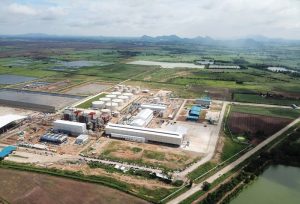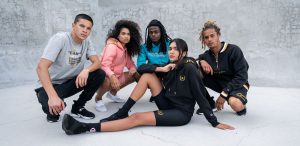 MINNETONKA, Minn. — August 9, 2021 — Continuing its global manufacturing expansion plan, NatureWorks, manufacturer of low-carbon polylactic acid (PLA) biopolymers made from renewable resources, has obtained final authorization from parent companies, GC International Corp. Co. Ltd., a subsidiary of PTT Global Chemical Public Co. Ltd. (GC) and Cargill Inc. (Cargill), to build a new Ingeo™ PLA manufacturing complex in Thailand. NatureWorks plans to invest in excess of $600 million to construct the complex, which will include production sites for lactic acid, lactide, and polymer, making it the world’s first PLA facility designed to be fully integrated.
MINNETONKA, Minn. — August 9, 2021 — Continuing its global manufacturing expansion plan, NatureWorks, manufacturer of low-carbon polylactic acid (PLA) biopolymers made from renewable resources, has obtained final authorization from parent companies, GC International Corp. Co. Ltd., a subsidiary of PTT Global Chemical Public Co. Ltd. (GC) and Cargill Inc. (Cargill), to build a new Ingeo™ PLA manufacturing complex in Thailand. NatureWorks plans to invest in excess of $600 million to construct the complex, which will include production sites for lactic acid, lactide, and polymer, making it the world’s first PLA facility designed to be fully integrated.
“Thanks to the ongoing support of our parent companies, our plans for a second Ingeo PLA manufacturing location continue to progress,” said Rich Altice, president and CEO of NatureWorks. “This authorization was an important milestone that ensures we will be ready to begin construction in 2022 on an integrated manufacturing complex that will help us address the increasing global market demand for sustainable materials.”
Dr. Kongrapan Intarajang, CEO of GC, said: “GC, Thailand’s leading chemical company and the world’s leading environmentally friendly bio-chemical producer, is committed to operating in accordance with sustainability guidelines and circular economy principles. Sustainability creates balanced growth in economic, social, and environmental dimensions, driven by the framework of the SDGs. Today, GC and Cargill, joint owners of NatureWorks, the top PLA biopolymer manufacturer globally, are ready to expand investment in the biochemical sector following the BOI’s investment promotion approval of NatureWorks.”
“Cargill is excited to take this next step with GC to support the expansion of NatureWorks through its second production facility,” continued Colleen May, president of Cargill Bioindustrial. “This marks an important milestone in our continued efforts to invest in sustainable solutions for bioindustrial customers around the world.”
Construction of the new manufacturing complex to be located at the Nakhon Sawan Biocomplex (NBC) in Nakhon Sawan Province will begin in the second quarter of 2022. With an expected opening in 2024, the facility will have an annual capacity of 75,000 tons of Ingeo biopolymer and produce the full portfolio of Ingeo grades.
Following this shareholder approval, NatureWorks has also selected engineering partners for the next project phase. Jacobs previously provided the front-end engineering design for the new manufacturing site and will now complete final detailed engineering for the project. Additionally, IAG, has been chosen to partner with NatureWorks on engineering and construction, providing project management, project controls, and procurement services. Both companies were chosen due to their expertise in executing large global capital projects.
In 2002, NatureWorks became the first company to produce PLA biopolymers at commercial scale. In 2013, NatureWorks expanded its flagship Blair, Neb., facility to an annual total capacity of 150,000 metric tons, making it the largest PLA manufacturing plant in the world. NatureWorks also announced a capacity expansion in 2020 at its Blair facility to further increase the availability of Ingeo biopolymers.
The expanded global production of Ingeo biopolymers will support growth in markets including 3D printing and hygiene as well as compostable coffee capsules, tea bags, flexible packaging, and food serviceware that demand sustainable, low-carbon materials and require the high-performance attributes that Ingeo is uniquely suited to deliver.
Posted August 9, 2021
Source: NatureWorks








